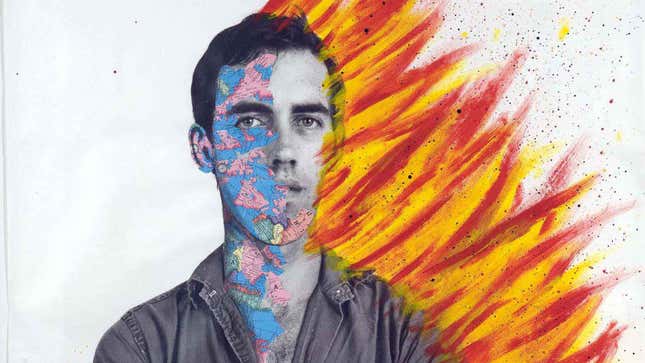

Lest you assume you’d be signing up for a stuffy art history lesson or, even worse, a “wholesome” family-viewing experience by turning on a documentary about militantly queer multimedia artist David Wojnarowicz, a new documentary about his life and work lays it all out there in its title: Wojnarowicz: Fuck You Faggot Fucker.
“The spirit of the title speaks so much to David’s work, the idea that you’d take this slur… and turn it into beautiful art—finding a way to use it against the people who use it against you,” explained the doc’s director Chris McKim to Jezebel by phone this week. “Of course there’s the spirit of reappropriating but it’s also audacious and in your face. It’s not my inclination to hold back or self-censor, but David being who he is, it was even more important to make sure that enough his intent was there.”
As art critic Carlo McCormick puts it in the doc, Wojnarowicz’s sensibility was: “I’m not gay as in I love you, I’m queer as in fuck off.” The doc’s subtitle comes from one of Wojnarowicz’s pieces, a collage featuring pictures of him and artist John Hall naked at New York’s historic Christodora House and a drawing on a map of two boys kissing. The artwork had, in turn, gotten its name from a homophobic scrawling paper scrap Wojnarowicz found. Not quite a pièce de résistance, Fuck You Faggot Fucker is but one of hundreds of remarkable creations (including sculpture, installations, writing, music, street art, and film) that Wojnarowicz completed before dying of AIDS in 1992. Critic and Wojnarowicz biographer Cynthia Carr wrote in Interview in 2012 that Wojnarowicz was “one of the prickliest, most mercurial, hard-to-pin-down experimenters of American art.”
“Rather than single out a piece and say, ‘This is his most important work,’ it really is that idea that in the end it was the collective body of work and it was the way he used his life in his work to make a change in the world while being true to what he wanted to do,” explained McKim. “That to me is incredibly inspiring.”
-

-

-

-

-

-

-

-

-

-

-

-

-

-

-

-

-

-

-

-

-

-

-

-

-

-

-

-

-

-

-

-

-

-

-

-

-

-

-

-








































